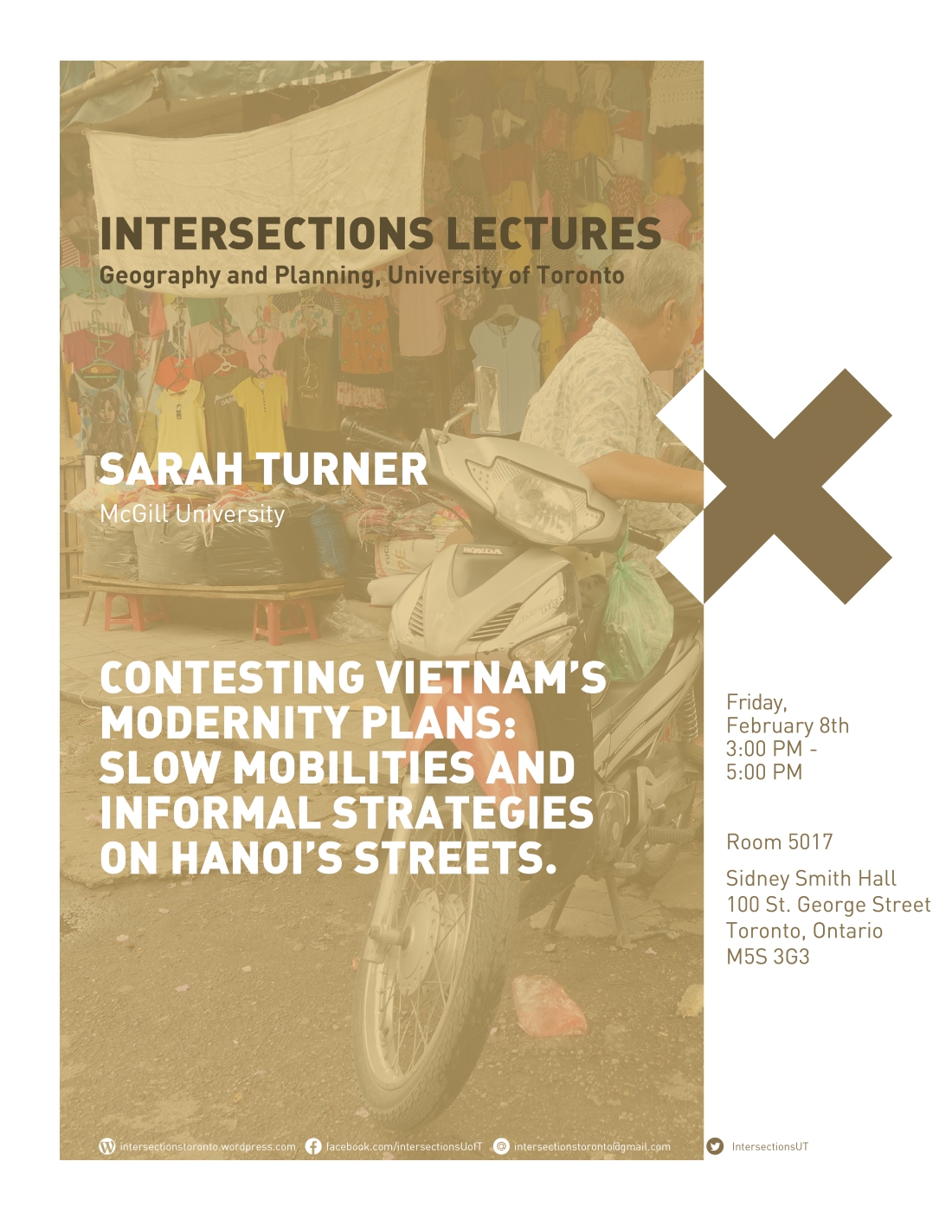Friday, February 8, 2019 | 3:00 PM – 5:00 PM
Sarah Turner
Sidney Smith Hall, Room SS5017 | 100 St. George Street, Toronto, ON, M5S 3G3 (map)
Contesting Vietnam’s modernity plans: Slow mobilities and informal strategies on Hanoi’s streets.
The Socialist Republic of Vietnam’s central government and Hanoi’s municipal authorities are currently conceiving a capital city replete with orderliness and security. This state imaginary privileges ‘modern’ mobilities with highways, expressways, and an elevated metro all being championed, while so called ‘traditional’ means of moving around the city such as motorbikes, bicycles, or handcarts are being strongly discouraged and increasingly marginalised. For example, Hanoi officials have banned itinerant street vendors from key downtown streets and public spaces since 2008, and are now implementing a step-wise ban on the city’s five million motorbikes from the city’s core by 2030. These bans threaten the livelihoods of thousands of informal workers including migrant street vendors and motorbike taxi drivers (locally known as xe ôm). Such state imaginaries, policies, and plans privilege certain forms of movement by designating streets and sidewalks for the fluid movements of ‘modern’ transportation, rather than the staccato ‘traditional’ mobilities of street vendors who stop frequently to ply their trade, or the need for xe ôm drivers to wait on sidewalks for customers.
Drawing on mobilities and everyday politics literatures, and ethnographic fieldwork in Hanoi with street vendors, xe om drivers, and other relevant actors, I argue that the state’s vision for the city creates specific mobility experiences, rhythms, and frictions for these informal workers. For street vendors, ‘identity management’, social networks, and adjusting to police spatial-temporal routines have become critical resistance strategies as they strive to maintain mobile livelihoods despite threats of state sanctions and exclusion. Xe ôm drivers must not only negotiate policies curbing their mobilities, excessive police fees, and dangerous customers, but also new GrabBike competitors. These xe ôm drivers have reacted with subtle everyday politics to reshape their mobilities, while also creating new narratives regarding their role in upholding neighbourhood security. I thus highlight how mobility and access to urban streets are being framed, co-produced, and respatialised in a rapidly growing socialist city.
About the Speaker: I am a development geographer focusing on urban and rural livelihoods in Southeast Asia. I currently work with informal labourers in Hanoi, Vietnam, and ethnic minority farmers regarding their livelihoods in the Sino-Vietnamese borderlands. My research strives to anchor development thinking and practice in the day-to-day realities and aspirations of individuals who can find it difficult to ‘have a voice’ given their own political, ethnic, or economic positions. I’m one of the co-editors of Geoforum, and have worked at McGill since 2002, and before that in my homeland New Zealand.

